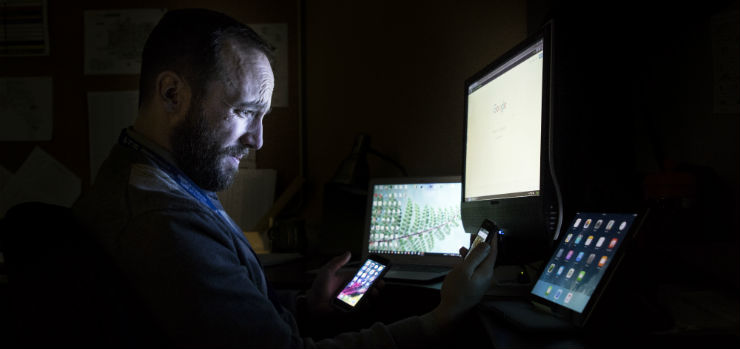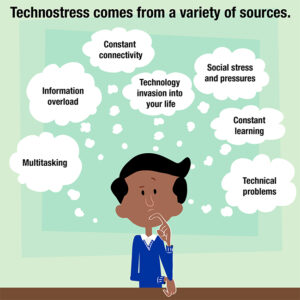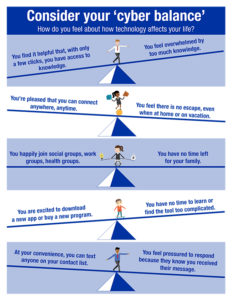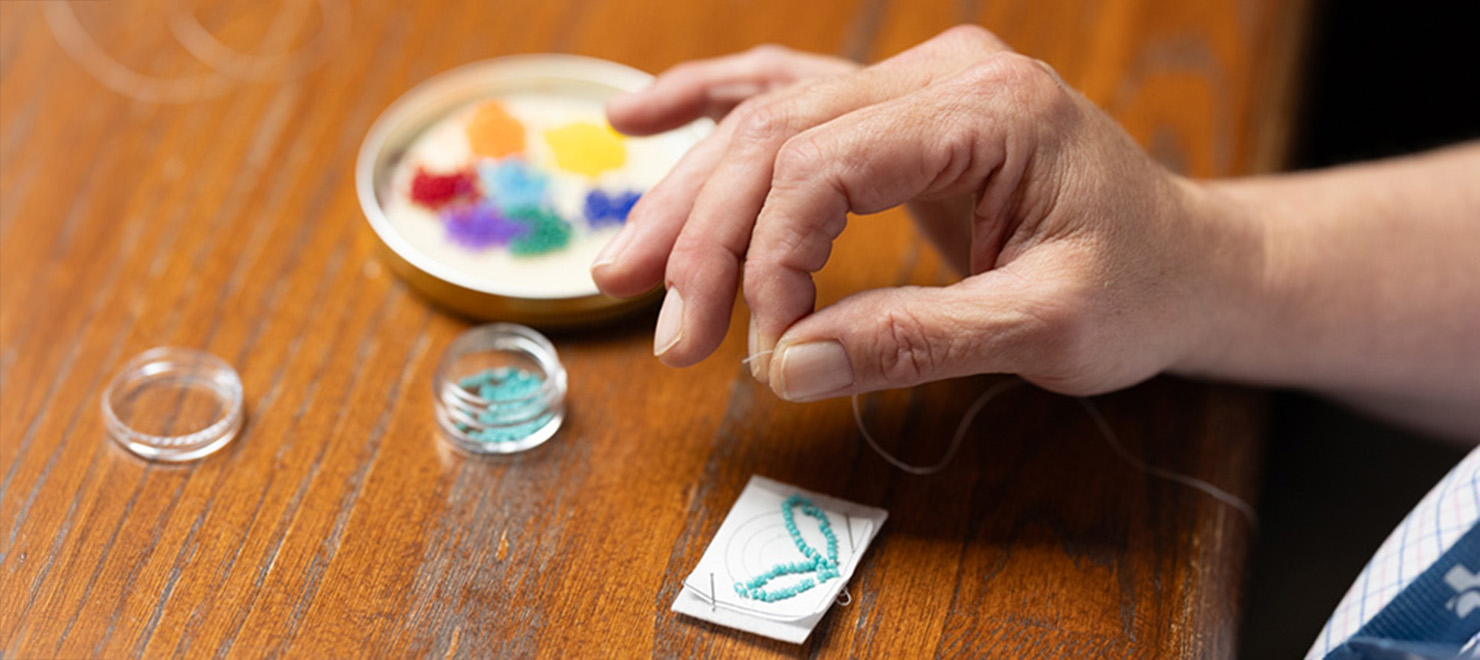
If you feel that technostress is interfering with your daily activities or your relationships, you may need to change some behaviours to make technology work for you.
Technostress can interfere with your daily activities or relationships. If you feel that’s happening to you, your coping system may need the free upgrade recommended by two psychologists at The Ottawa Hospital.
“Although this upgrade is free, you will need to take control and find the time to set up the supports,” said Psychologist Dr. Julie Beaulac.
Technostress, which can include feeling overwhelmed or anxious, results from technological overload.
“Indeed, technostress comes from a supply-demand mismatch, when the demands of our environment exceed our ability to meet those demands,” explained Psychologist Dr. Bryce Mulligan. “When change is constant or starts to happen more frequently, we struggle. Technological changes are happening more and more frequently. For some, this creates conditions for chronic stress, which lead to a variety of physical and psychological symptoms.”

The effects of technostress can be physical (such as headache, fatigue, eye strain, neck pain), behavioural (such as avoidance, social withdrawal, addiction), and/or emotional or psychological (such as irritability, fear, frustration, information overload, learned helplessness).
The first step is to consider how well you balance technology in your life. Are you technosavvy, technostressed, or somewhere in between?

Take a quiz to see how addicted you are to your smartphone or read an article on “Dealing with Technostress: Beware of letting the machines take over.”
Here are six key tips the psychologists recommended for balancing techno-perils and techno-pleasures.
- Create supportive environments. Ask friends or family to call instead of text. Set limits, such as telling others you will be offline at a set time. Delete unnecessary apps from your cellphone to reduce the visual traffic.
- Create conditions for focus. Set a time and place for periods of concentration. Turn off notifications. If your work doesn’t allow that, respond to what is urgent, rather than what has “beeped” most recently.
- Manage overconnectedness. Limit how often you check emails or webpages. Create filters for important emails. Protect your time – carve out family time with no technology and turn off social media.
- Use technology mindfully. Be intentional and selective when using the internet – don’t just browse because you can. Guide your own search rather than letting the pop-ups drive you. Choose in-person contact over internet contact. Take momentary breaks, such as looking outside or going for a walk in nature. Take longer-term breaks, such as vacations without devices.
- Prioritize self-care. Ensure you sleep well. Eat well. Move your body, as much as your schedule allows. Don’t underestimate the benefit of doing kind things for yourself, such as hobbies, recreational sport, meditation, music, art, and connecting with others in person.
- Use technology to support you. Numerous apps can help with self-care, relaxation, and screen time monitoring. Put technology to work for you, rather than against you.
To ensure that your coping system remains effective over time and with ongoing technological advances, you may need ongoing reviews and upgrades to help you continue to minimize technostress.

Support patient care and research at
The Ottawa Hospital
You might also like…
Bringing communities together, one stitch at a time
In celebration of June being both National Indigenous History Month and Pride Month, The Ottawa Hospital hosted a beading workshop for Indigenous and 2SLGBTQIA+ staff and their allies.
Aging well: Guidance for older adults
In this special video series for both older adults and their loved ones, geriatric care specialists from The Ottawa Hospital offer guidance on navigating common health-care challenges that may arise with aging.
How to stay safe around water this summer
Drowning can happen to anyone — even strong swimmers. Emergency physician Dr. Christian Vaillancourt debunks common myths about drowning, explains how to act quickly to save a life, and shares what you can do to keep yourself and your loved ones safe around water.
What’s the difference between an optician, optometrist, orthoptist and ophthalmologist?
“Do I need to see an optician, optometrist, orthoptist or ophthalmologist?” We asked Ophthalmologist Dr. Annick Fournier to break down each role so you will know who to consult for your specific eye care needs.
Understanding rabies: Risks, vaccination and what to do after a bite
Although rare in Canada, rabies is almost always fatal once symptoms appear. Infectious diseases expert Dr. Michaeline McGuinty shares how rabies is spread, when to get vaccinated and what to do after a bite.
“My story doesn’t have to be your story”: New screening test better at preventing cervical cancer
“I went from being a 32-year-old new mom to a cancer patient with an incurable diagnosis.” Alicia’s journey underscores the critical role of HPV testing in preventing cervical cancer. Discover how the new HPV test can save lives and find out how to book your cervical screening appointment with our “Superscreener.”


 To reset, hold the Ctrl key, then press 0.
To reset, hold the Ctrl key, then press 0.





